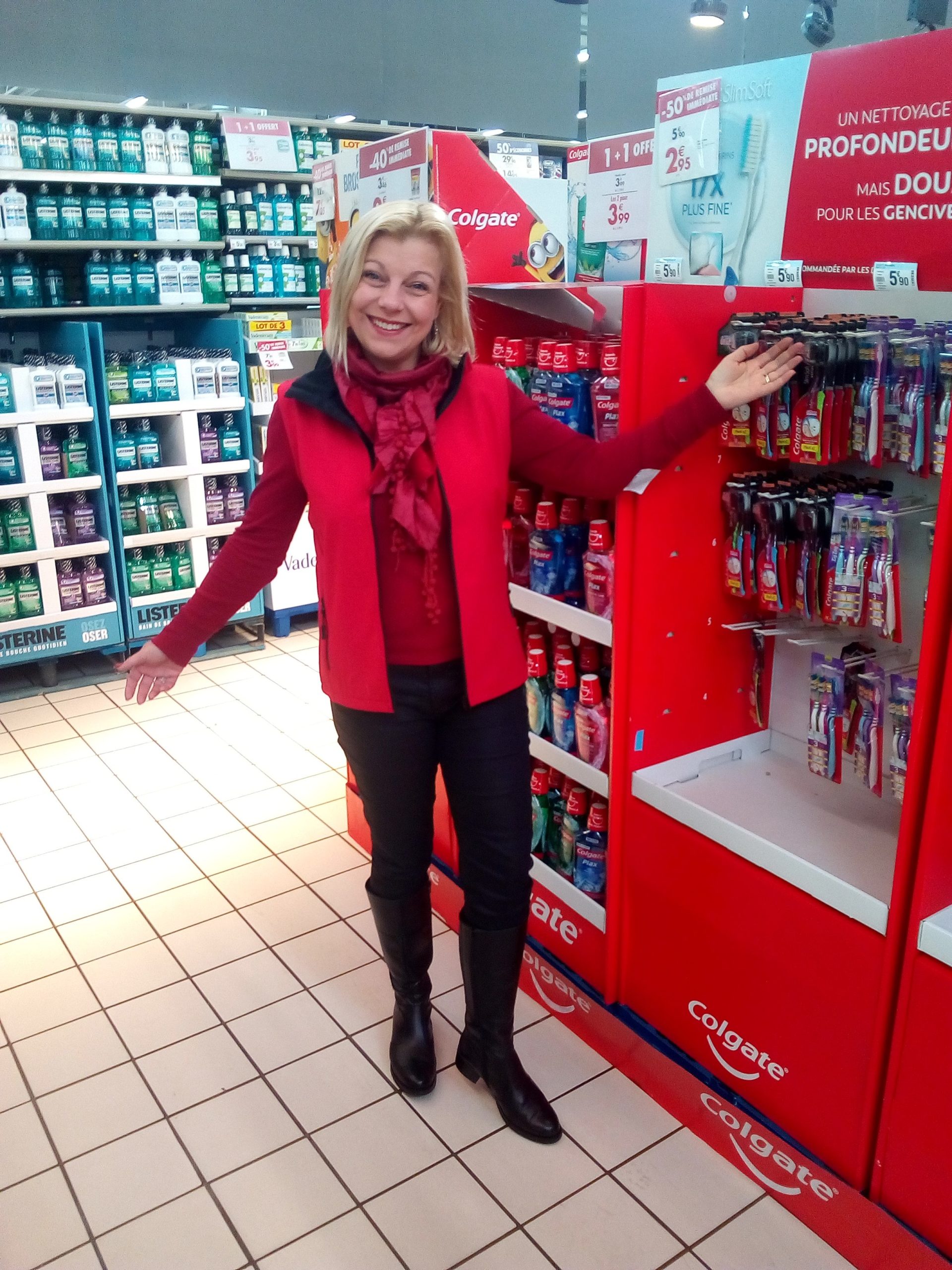In the face of the pandemic, mutual aid was organised and solidarity took different forms.
Today we would like to highlight one such initiative that has made life easier for some and made the situation of relatives or strangers less difficult.
Catherine's testimony
Catherine agreed to give us her testimony.
Catherine lives in Bordeaux. Originally from the Champagne region, she has a part of her heart and head in Italy where she lived for some time.
"Ever since I was a little girl, I wanted to be a shopkeeper. I used to have fun putting price stickers on jam jars to sell to my parents and anyone else who came to the house.
With these first words, Catherine tells us what led her to become a SIG facilitator.
After working for 6 years as a medical secretary, Catherine decided to join the world of animation. She has been working for SIG on a part-time basis for the past 15 years.
She chose the world of promotion because there is no routine. "I wouldn't have liked to be a shop assistant. It's not challenging enough for me. I need challenges. Working only a few days a week is a choice. And my week is only filled with things I like to do," she says.
Under the animator's costume
Catherine is a designer. An avid sewer, Catherine loves to make alterations to stage costumes, evening wear and show sets. Her mind thinks and designs at a hundred miles an hour, with an ability to project herself to see the potential in everything. This is what led him to start making overcoats for carers in the Bordeaux region during lockdown. How did she get the idea? Confined like all French people and connected on social networks, Catherine saw posts where her contacts shared photos of their homemade masks.
The need to feel useful
Catherine said to herself: "Why not me? I can also use this time to help.
Armed with her strength of conviction and the will to make a contribution, she went to DIY stores to obtain free of charge wintering cloth, the very thin fabric that protects the most fragile plants from the cold. This fabric will enable her to make these famous overblouses. Just enough time to load the 3-metre rolls into her car and off she goes!
The seamstresses of the shadows
At the beginning, Catherine is alone. Soon three, then five, then eight other seamstresses joined her. Eventually, they formed a group of about fifteen volunteers. Each seamstress works from home. In order to be able to dress as many carers as possible, the gowns are all one-size-fits-all and are supplied with a belt to enable them to be adjusted.
"It takes about 45 minutes to make a blouse. You have to take the veil, measure it, draw the lines, cut out the different pieces, assemble them with pins and then sew them together," says Catherine.
Deliveries are being organised
Catherine is also a fine strategist. In order to be able to deliver, her team is organised. She establishes a principle of relay stages "to organise the weekly collection of the overblouses produced.
The aim is to trace the production back to the Pellegrin University Hospital in Bordeaux, where the doctor in charge of distributing the gowns for the hospital and for the Ehpad in the Bordeaux region works. In order to avoid long journeys, each seamstress hands over her production to the seamstress closest to her home. Thus, one thing leading to another, the booty grows at each stage of the deliveries and the seamstress closest to the hospital (Catherine in this case!) gives the doctor all the gowns produced during the week.
Production lasted for the two months of containment. Catherine and her team produced almost 200 overcoats per week, over 1500 overcoats over the period.
In addition to the overcoats, Catherine also made fabric masks. "For weeks I hardly saw the light of day because I was so busy with my production. But I have no regrets: it was an incredible experience," she adds.
Values on the ground
Today, Catherine has resumed her activities as an animator.
"Being a facilitator allows me to evolve, to question myself in order to improve and to progress. Many people see us as pawns that can be moved around as they please. Sometimes we would like more recognition.
In this respect, SIG is a very good agency. It has managed to keep this relationship and this human face that is lost today and that you don't find in some agencies. It is important for us to know that what we do counts.
Well yes Catherine, what you do every day in your missions for SIG counts. The mobilisation and energy that you deployed during the lockdown counted and marked us.
A big THANK YOU to you for this great surge of solidarity!




